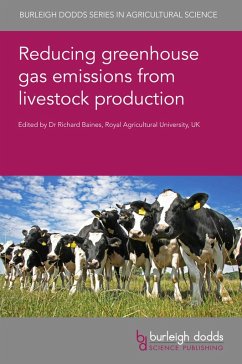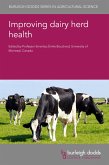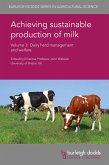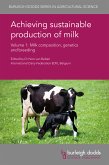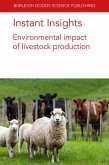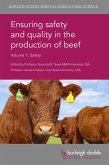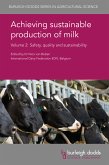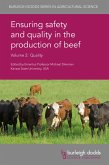"This book addresses all relevant aspects in current efforts to mitigate GHG emissions from livestock production with contributions by authors with recognised expertise in this field. It covers the various levels of organisation involved, ranging from the sub-animal level to the whole farming system level. By delivering an overview of the current state of knowledge, the book provides important added value to the subject."
Dr André Bannink, Wageningen University, The Netherlands
Recent Intergovernmental Panel on Climate Change (IPCC) Reports have highlighted the environmental impact of livestock production as a major source of non-CO2 emissions: methane (CH4), nitrous oxide (N2O) and ammonia (NH3). The livestock sector must react to these reports and develop or implement methods that can reduce greenhouse (GHG) emissions from livestock production.
Reducing greenhouse gas emissions from livestock production provides authoritative reviews on measuring GHG emissions from livestock as well as the range of methods that can be applied to reduce emissions, ranging from breeding to animal health and manure management. The collection also reviews nutritional approaches such as improving forage quality and the use of plant bioactive compounds and other feed supplements to limit emissions by modifying the rumen environment.
Drawing in an international range of expert authors, Reducing greenhouse gas emissions from livestock production summarises what we can do to make livestock production more sustainable and viable for the future. It will be a major reference for the livestock (particularly dairy) science research community, environmental scientists, government and other agencies tackling the challenge of climate change, as well as companies involved in livestock production and processing of dairy and meat products.
Dr Richard Baines is Senior Lecturer in International Rural Development and Agri-Food Systems at the internationally-renowned Royal Agricultural University in the UK. Dr Baines has worked with international bodies such as the FAO, national governments and NGOs on the environmental assessment and improvement of crop and livestock production. Dr Baines has also developed environmental standards for the Safe Quality Food (SQF) Institute which are widely used across the agricultural, food processing and retail sectors.
Dr André Bannink, Wageningen University, The Netherlands
Recent Intergovernmental Panel on Climate Change (IPCC) Reports have highlighted the environmental impact of livestock production as a major source of non-CO2 emissions: methane (CH4), nitrous oxide (N2O) and ammonia (NH3). The livestock sector must react to these reports and develop or implement methods that can reduce greenhouse (GHG) emissions from livestock production.
Reducing greenhouse gas emissions from livestock production provides authoritative reviews on measuring GHG emissions from livestock as well as the range of methods that can be applied to reduce emissions, ranging from breeding to animal health and manure management. The collection also reviews nutritional approaches such as improving forage quality and the use of plant bioactive compounds and other feed supplements to limit emissions by modifying the rumen environment.
Drawing in an international range of expert authors, Reducing greenhouse gas emissions from livestock production summarises what we can do to make livestock production more sustainable and viable for the future. It will be a major reference for the livestock (particularly dairy) science research community, environmental scientists, government and other agencies tackling the challenge of climate change, as well as companies involved in livestock production and processing of dairy and meat products.
Dr Richard Baines is Senior Lecturer in International Rural Development and Agri-Food Systems at the internationally-renowned Royal Agricultural University in the UK. Dr Baines has worked with international bodies such as the FAO, national governments and NGOs on the environmental assessment and improvement of crop and livestock production. Dr Baines has also developed environmental standards for the Safe Quality Food (SQF) Institute which are widely used across the agricultural, food processing and retail sectors.
Dieser Download kann aus rechtlichen Gründen nur mit Rechnungsadresse in A, D ausgeliefert werden.

